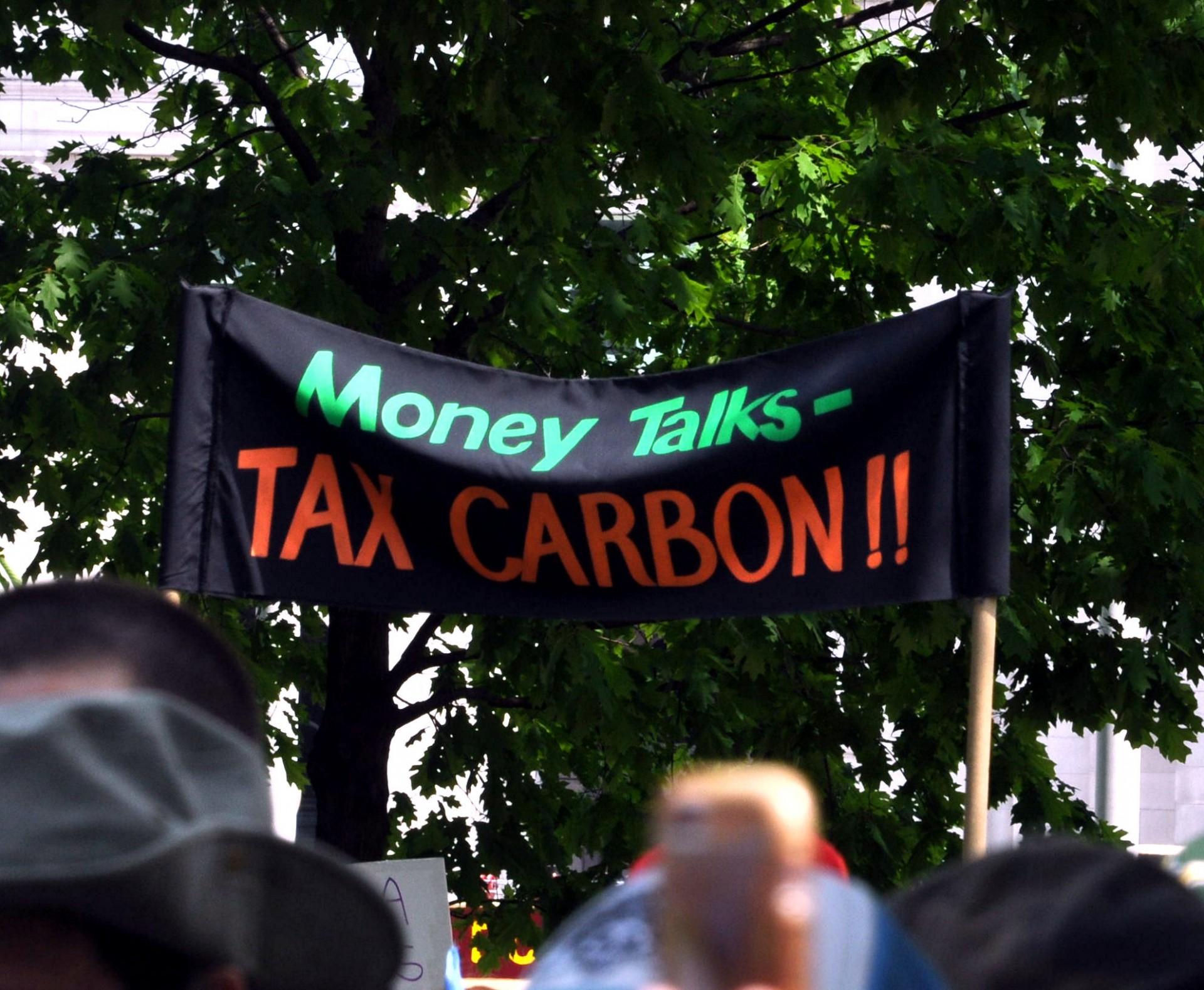Jesus and the State of Alaska Agree: Oil Companies Owe You Money
Maybe if we stopped looking for a magic bullet to end climate change, we’d find some pretty good tools that work well enough.

C+S 2021 students are blogging about topics that interest them for Applications in Climate and Society, a core spring class.
The first man who, having fenced in a piece of land, said "This is mine," and found people naïve enough to believe him, that man was the true founder of civil society. From how many crimes, wars, and murders, from how many horrors and misfortunes might not any one have saved mankind, by pulling up the stakes, or filling up the ditch, and crying to his fellows: Beware of listening to this impostor; you are undone if you once forget that the fruits of the earth belong to us all, and the earth itself to nobody.
—Jean-Jacques Rousseau, Discourse on the Origin of Inequality
What if someone broke into your apartment and, instead of taking anything, dumped buckets of oil all over your home?
They didn’t technically destroy anything, and they certainly didn’t steal anything. In fact, they were giving a highly valued commodity away for free to a total stranger.
But ... they would still owe you for the damages, right?
On a planetary level, that’s the idea behind Peter Barnes’s “Sky Trust,” a concept that could help us address carbon pollution. All people collectively own the sky, so anyone who wants to dump proverbial buckets of oil all over it has to pay up, and everyone else gets dividends from the trust. The principle is simply a variation of a land value tax, which collects what’s known as “ground rent” on the unimproved value of any privately held land. The theory behind it is that land is the collective right of all people and thus cannot be privately owned, but a landholder may pay ground rent for the privilege of denying access to others, who then receive a portion of the rent. In this case, polluters are paying “air rent,” if you will, for the privilege to deny clean air to others. It sounds kind of far out there, but the concept that all people share responsibility for the land on which we live, and thus share the benefits equally too, has been around for ages.
From the Tsq’escenemc Secwepemc people, whose name is linguistically related to words meaning the people, land, ground, and soil, to Jesus of Nazareth, who himself “had nowhere to lay his head” and directed a rich man to “go, sell what you have,” collective stewardship of the Earth and its resources can be found in religions, cultures, and political ideologies across time and history. The specific notion has been recorded as far back as the first millennium BCE in the Sanskrit text, Āpastamba Dharmasūtra.
Barnes’s particular version has more modern roots: the Alaska Permanent Fund (APF). Though several cities have experimented with various forms of guaranteed income in recent years, the permanent fund is the closest thing to Universal Basic Income operating at scale in the U.S. The APF collects at least 25% of the revenue generated from the North Slope oil reserves on the justification that future generations won’t have access to the benefits of this natural resource, and dividends from the fund are paid out to all Alaskans annually.
While Barnes cites Thomas Paine, who quipped that God didn’t “open a land-office, from whence the first title-deeds should issue” in his condemnation of private property, as inspiration for the APF and his own Sky Trust, there’s been a growing resurgence of the single tax movement popularized by Henry George, which is founded on the land value tax that the Sky Trust mimics.
Georgist economics would enable effective climate policy whether a land value tax is collected specifically for climate purposes or just for the sake of good economic practice. Whether doing so drives down emissions a little or a lot is less important than the revenue it will generate for other climate action. A portion of that revenue can fund a citizen’s dividend in the style of the APF, the success of which lies in the agreement that the dividend is not a handout, but the natural right of those living on the land being exploited for oil profits.
If this seems like too good of a solution to actually work, remember that it’s not a magic bullet. Oil production hasn’t stopped in Alaska, and that was never the goal of the APF—but every Alaskan has gotten around $1,000 to $2,000 every year since 1982. Scaled nationally, the revenue from a land value tax on oil production or an “air value tax” on pollution has the potential to divert substantial funding to clean energy projects while putting money in every American’s pocket.
Maybe if we stopped looking for a magic bullet to end climate change, we’d find some pretty good tools that work well enough. After all, the oil’s already been dumped all over our home. We may as well get some money out of it.
